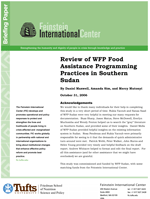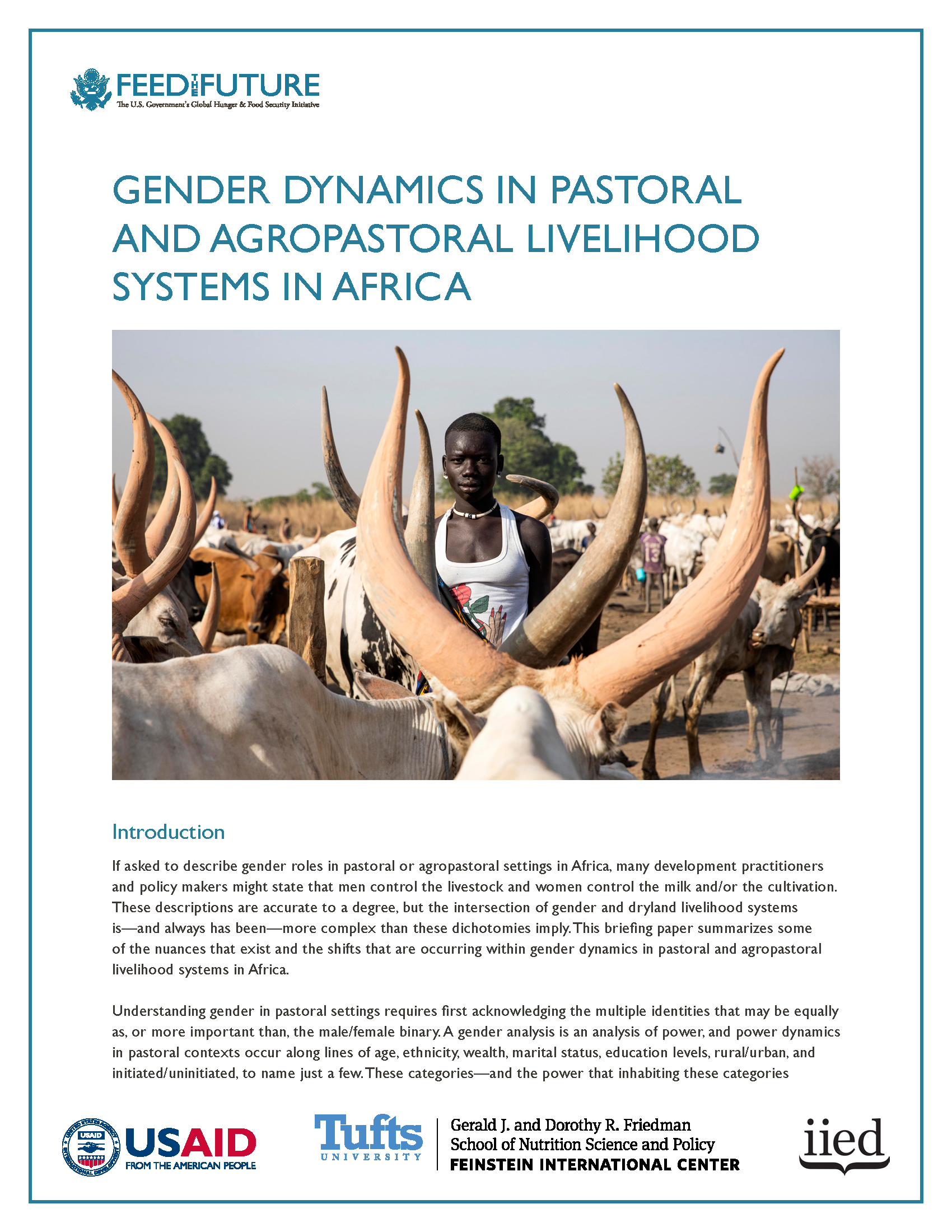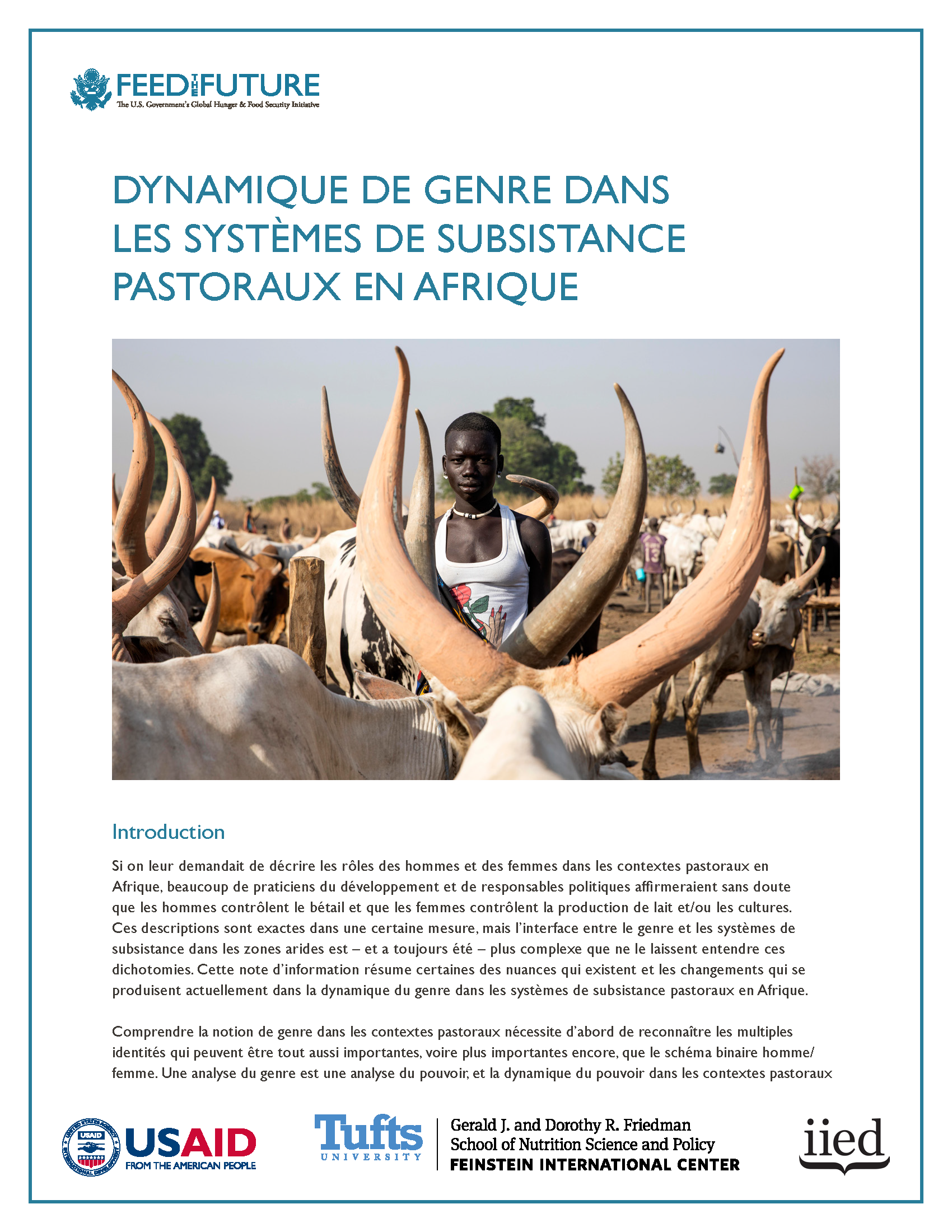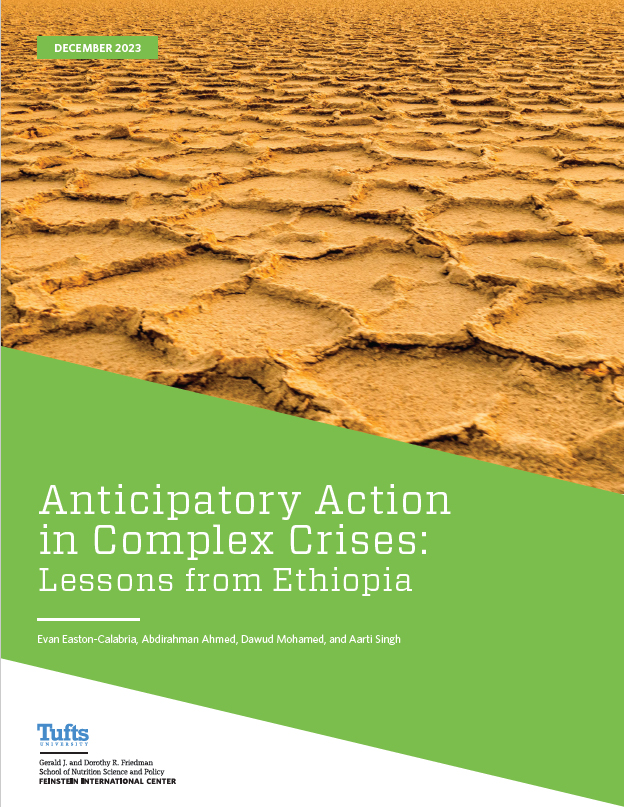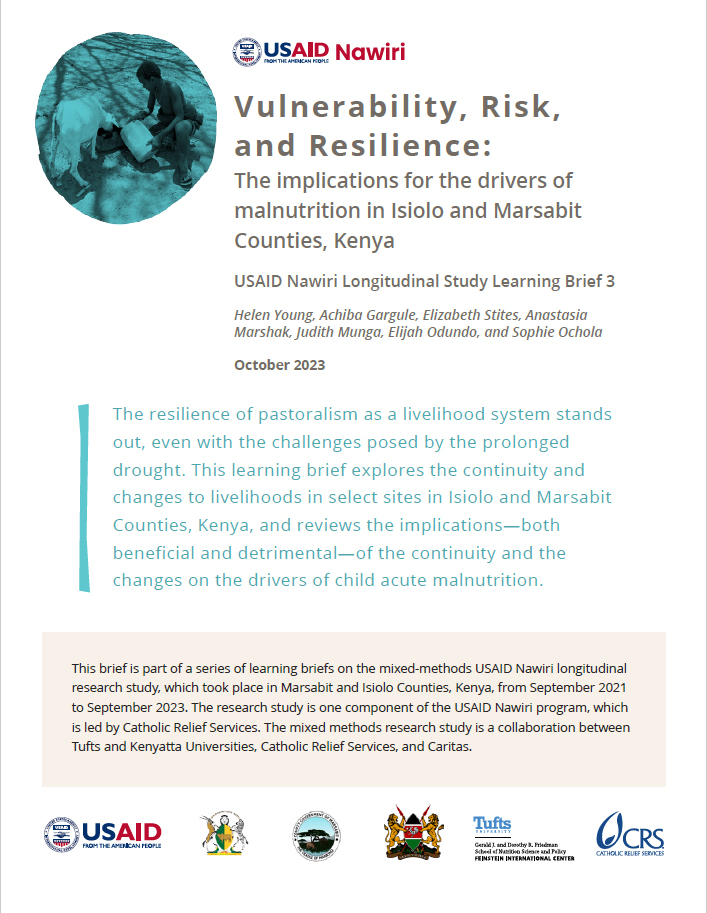The World Food Programme has been providing humanitarian food assistance to vulnerable communities and groups in Southern Sudan for over twenty years, but circumstances have changed following the signing of the Comprehensive Peace Agreement (CPA) in January 2005. We undertook this review of programs in Southern Sudan to help WFP Sudan make the needed changes to adapt to these new circumstances. The objective of this study is to improve programming in the 2007 EMOP and the subsequent PRRO. The Feinstein International Center views this as one step to building a long-term partnership with WFP Sudan.
The report reviews changes in the operating environment in Sudan generally and Southern Sudan specifically following the end of the long-running war between the Sudan People’s Liberation Movement/Army (SPLM/A) and the Government of Sudan. While the implementation of the Comprehensive Peace Agreement is beset with numerous challenges, it offers Sudan the framework to move from a situation of protracted internal conflict to a more peaceable coexistence. In the short term, however, this may cause humanitarian conditions to deteriorate as hundreds of thousands of refugees and internally displaced people move back to their places of origin, where there is little in the way of infrastructure or livelihood possibilities in the immediate term. Timely assistance will be necessary in order to enable communities to absorb large numbers of returnees without falling victim to further food insecurity and vulnerability. In the longer term, the stage must be set for livelihood recovery. In these circumstances WFP has a unique opportunity to decide on its core function and role.
The contents of this report are confined to a review of documents availed by WFP Sudan, and published papers, reports, and documentation found in the “gray” literature. No first-hand observation or direct interviewing was possible, given the short period of time available for the review. Hence the recommendations here may be suggestive rather than comprehensive. Major issues arising include: the information systems and analytical capacity on which program decision-making rests; monitoring, understanding, and addressing the continued high prevalence of acute malnutrition in Southern Sudan; the targeting, timing and delivery of food aid in Southern Sudan; and questions related to organizational learning in a protracted acute emergency situation. Other issues that emerged, but for which there was less evidence in existing documentation include: the impact—positive and negative—of food aid transactions on local markets and communities; the impact of food aid on gender and intra-household relations; and the impact of food aid on conflict, displacement and protection.
In the absence of direct observation or interviewing, the Tufts team undertook to note where the internal and external documentation appears to converge around problems and solutions, and where they diverge. In both cases, the team made a judgment about the strength of the evidence on which they were based. Where there is broad agreement and the evidence base is convincing, recommendations for program and practice are fairly straightforward. Where views are varied or divergent, the team did its best to judge the evidence and recommend accordingly, but tentatively, pending confirmation through field work and stakeholder consultation. Where the evidence base is weak or contradictory, further research is needed to determine programmatic directions. The recommendations are in the final section of the report, but are summarized in Table 1. The final section also includes recommendations for transitional programming.

